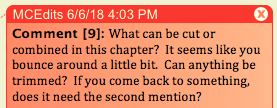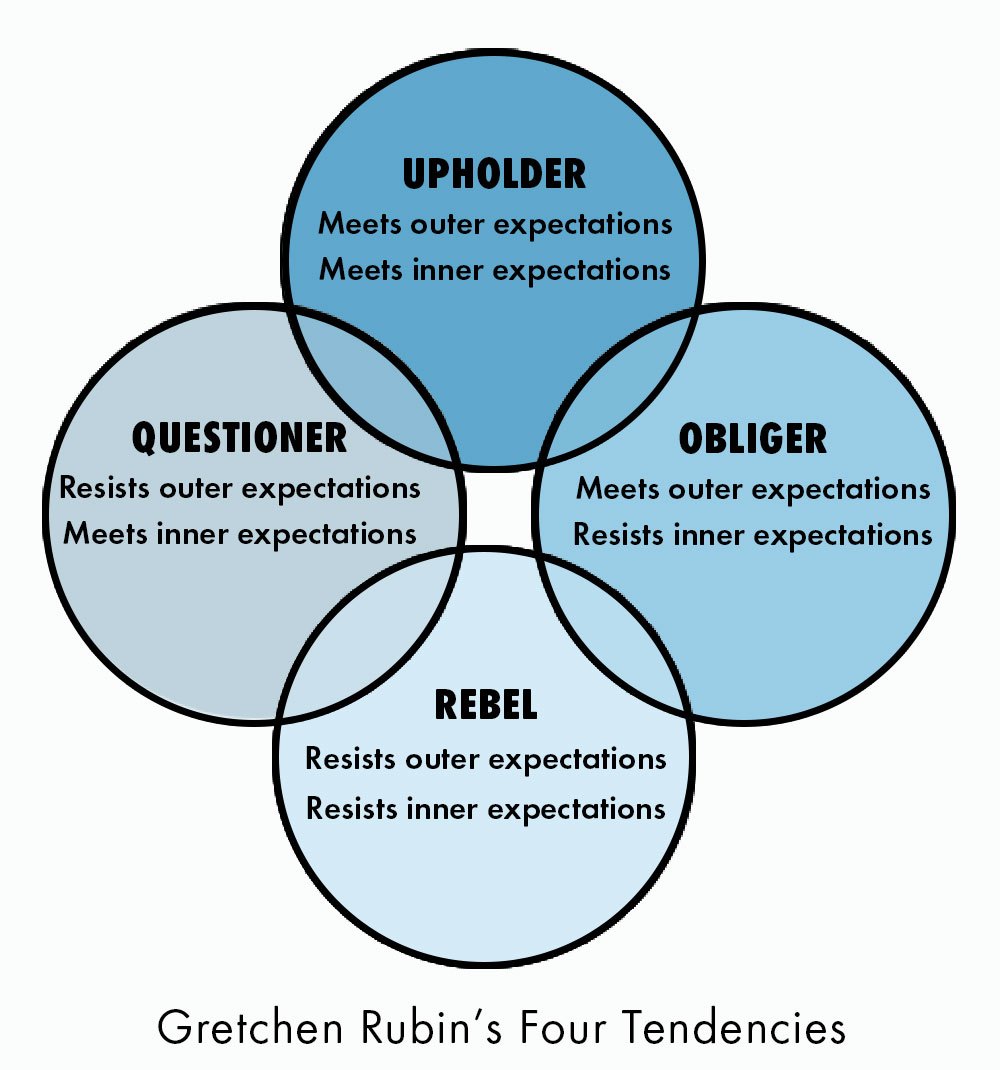I Question Therefore I Am
I am a Questioner.
I have even led off with this in client conversations.
See, some people feel challenged by being asked a question. But that is not my intent, so I feel the need to give people a disclaimer.
As a Questioner, I need to know the rationale behind something my brain would not have come up with. I can see how this was challenging when I was in a subordinate position (one of many reasons I enjoy being my own boss). However, I just want to do things well, and I want to do them correctly. So I ask questions.
Editing Questions
As an editor, I ask questions to make sure I am sticking to your voice. I need to know that I am interpreting your writing how you meant it. And if I’m not, it is actually my job to rework it so that the writing clearly portrays your meaning.


I also ask questions when there might be a better way to do something. Or if there is a shade of gray in the grammar rules (which happens more than you may realize!)


I have had clients respond well to my questions. A question will actually make you think about your writing, your intent. Unlike a correction or a lecture about a style guide, which will just make you say yes or no—or make you roll your eyes—a question can inspire you to take your work to genius level.
So my Questioner tendency makes me a better editor! (And if you’re a Questioner, too, you may be asking why I keep capitalizing the word.)
So… Umm… Questioner?
I have a friend who adores Gretchen Rubin. She discovered the Rubin Tendencies while I was struggling with a boss who was lacking in self-esteem (not good to question those…) My friend told me she thought I was a Questioner, and of course I immediately thought, “Why would she think that?!”
These tendencies are determined based on how you respond to expectations. Check out this image for the breakdown:
So I dutifully checked it out and thought my friend couldn’t be right, because I am the WORST at disciplining myself. No way do I meet inner expectations. Plus, who doesn’t want to be a Rebel?
So I listened to Gretchen’s podcast on Questioners and definitely felt connected to the whole not being able to make decisions, but of course I wanted to know more. (Wooh… scientifically trained Questioner? I so quickly fall down the research hole.)
Questioner with Obliger Overtones
 When I found out that Questioners often have either Rebel or Obliger leanings, I was convinced. The only time I have regularly exercised was when I had an accountability partner, and I have quite the work ethic: if I have a deadline or made a promise, I fulfill it even if I don’t know why I’m doing it or if I totally disagree with it. I now realize that because I have said I will do it that explains why I should do it and trumps all other questions until I have completed the task. (Then I evaluate what got me into the stupid situation to begin with.)
When I found out that Questioners often have either Rebel or Obliger leanings, I was convinced. The only time I have regularly exercised was when I had an accountability partner, and I have quite the work ethic: if I have a deadline or made a promise, I fulfill it even if I don’t know why I’m doing it or if I totally disagree with it. I now realize that because I have said I will do it that explains why I should do it and trumps all other questions until I have completed the task. (Then I evaluate what got me into the stupid situation to begin with.)
As Gretchen mentions during her intro to the tendencies in Episode 13, I “hate anything arbitrary, unfair, or irrational.” So despite the fact that I have trouble motivating myself—if I can rationalize it—I will do it. Unfortunately it is very easy to rationalize why I want to solve a logic puzzle on my phone instead of doing work if there isn’t a deadline looming. It is also easy to convince myself I need to research a topic to be sure the writer is accurate… and keep going for half an hour after I found the answer, just to be sure of the nuances!
But, MC, Aren’t You an Obliger?
It may seem like I should be an Obliger, but I really do need to know why. It’s not just as simple as you told me to do it. In fact, I tend to rebel if the request doesn’t make sense to me. For Questioners, it all comes back to internal expectations, so learning coaching techniques and scheduling items have given me more discipline. And getting a reason for a request makes me more likely to say yes to it.
Interested in finding out your tendency? Take Gretchen’s quiz. (The link is actually for her quiz launch because it gives you some more info before linking to the quiz.)
Let me know in the comments below which tendency you are and what you learned about yourself from the Rubin Tendencies.


Leave a Reply